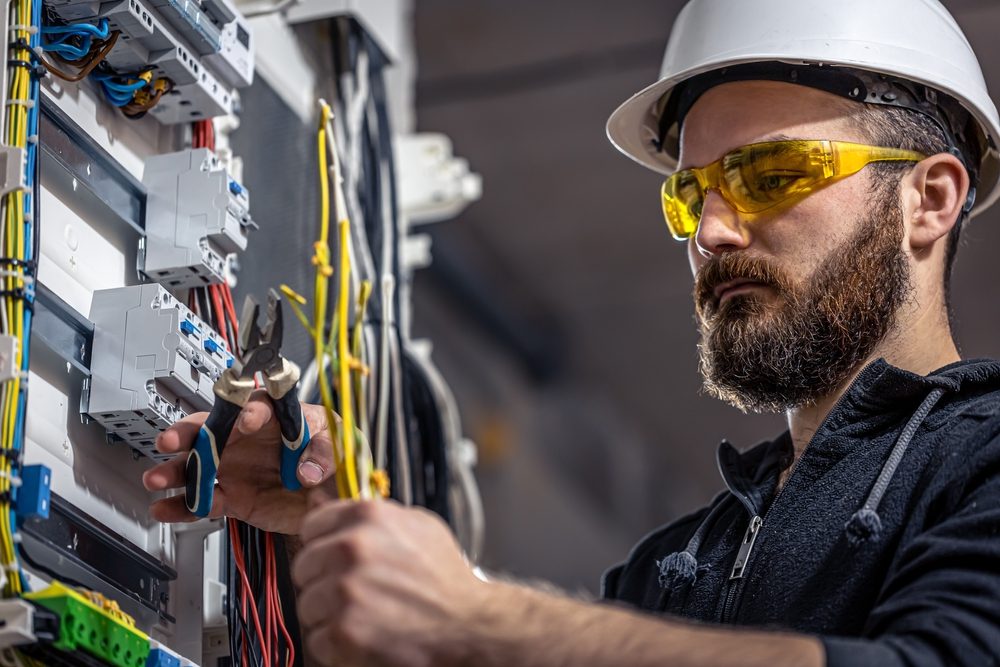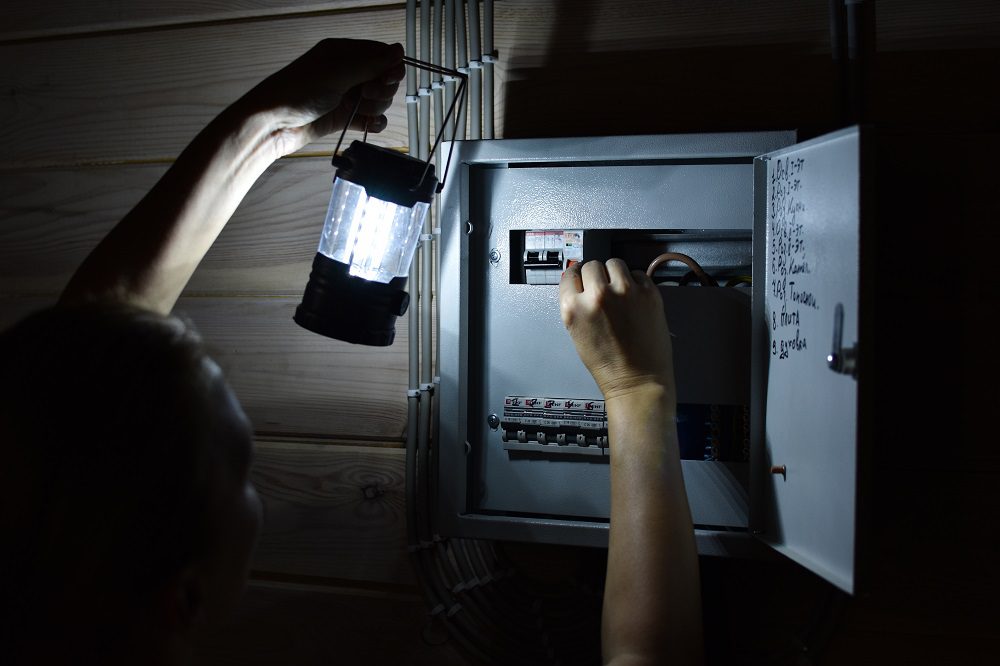Homeowners in Charlotte ask this question often, usually after a light stops working or a breaker trips at 9 p.m. The short answer: in North Carolina, only licensed electrical contractors can legally perform most electrical work. Handymen can handle very limited, non-structural tasks, but they cannot install, alter, or repair electrical wiring, devices, or equipment that connect to a home’s electrical system. If the job touches the panel, circuits, or permanent wiring, it requires a licensed electrician.
This matters for safety, insurance, and code compliance. It also affects resale and home inspection outcomes in neighborhoods across Charlotte, from Dilworth and Plaza Midwood to Steele Creek and Ballantyne.

What North Carolina Law Allows vs. Prohibits
North Carolina General Statutes and the NC State Board of Examiners of Electrical Contractors set clear lines. electrical repair cost Any installation, repair, or alteration of electrical wiring, apparatus, or equipment falls under electrical contracting and requires a license. That includes adding outlets, replacing switches if wiring is involved, installing new light fixtures, running new circuits, working on GFCI/AFCI protection, and any panel or service work.
Handymen may assemble plug-in items or replace screw-in bulbs. They can mount a TV or hang a ceiling fan body as a mechanical task, but the electrical connection must be completed by a licensed electrician. If a task requires touching branch circuit conductors, opening a junction box, or modifying a circuit, it is licensed work.
Why the Rule Is Strict in Charlotte
Charlotte-Mecklenburg inspections are rigorous because small mistakes cause big losses. Arc faults, undersized conductors, loose terminations, and mismatched breakers lead to heat and fires. Insurance adjusters and home inspectors look for permits and licensed work, especially in older homes in Myers Park, Chantilly, and Wilmore where mixed copper and aluminum wiring is common.
From field experience, three issues drive failures after handyman wiring:
- Neutral and ground tied together downstream of the panel Over-fused circuits, like 20A breakers feeding 14 AWG wire Box fill violations and buried junctions hidden behind drywall
All three show up in inspection reports and can derail closings or trigger costly rework.
Common Charlotte Scenarios and What’s Legal
Replacing a light fixture in a 1990s Ballantyne home seems simple. If the junction box is intact and the conductors are sound, a licensed electrician can swap it safely in under an hour. A handyman should not disconnect or reconnect the circuit conductors. If the box is loose, not rated for ceiling fans, or missing a ground, the scope escalates to licensed work immediately.
Adding a new outlet for a home office in Highland Creek requires running a new circuit or extending an existing one, GFCI protection based on location, proper box sizing, and AFCI if the code requires it. That is licensed work and often needs a permit.
Hot tub or EV charger in SouthPark? These require dedicated circuits, load calculations, and often panel upgrades. A handyman cannot legally perform any of it.
Troubleshooting a tripping breaker in University City or a half-dead kitchen circuit in NoDa requires testing, opening boxes, and correcting wiring faults. That is electrical repair, Charlotte NC homeowners should schedule with a licensed contractor.
Safety, Liability, and Insurance
Unlicensed electrical work can void homeowners insurance after a loss. It also exposes the homeowner to injury risk and liability if someone gets hurt. In Mecklenburg County, inspectors can require removal of unpermitted work, which adds demo and repair costs. Licensed contractors carry the appropriate insurance and bond, follow NEC and local amendments, and pull permits where required. That paper trail protects the homeowner.
What Counts as “Small” Electrical Work?
Many people assume swapping a switch is minor. It depends on what is inside the box. If the switch is part of a 3-way, if neutrals are bundled, or if aluminum wire is present, the risk climbs. Even a simple switch replacement can go wrong with back-stabbing connections or mixing up travelers. Small work is often where heat damage starts.
A better rule: if the job requires opening a box, touching conductors, or changing how a device is wired, hire a licensed electrician. If it plugs in, a handyman can assemble it.
Code Realities in Mecklenburg County
Charlotte has a diverse housing stock. Pre-1970 homes in Wesley Heights and Elizabeth may have cloth-insulated conductors and shallow metal boxes. 1980s builds in Matthews and Mint Hill often lack modern grounding and AFCI protection. Newer homes in Berewick or Riverbend are on AFCI/GFCI combos and tamper-resistant receptacles. Each era requires different skills and parts. Matching devices, understanding load, and meeting current NEC articles keeps the system safe and insurable.

Permits are required for many electrical alterations. Inspectors will look for properly rated fan boxes, correct breaker type for the panel brand, listed splicing methods, and labeling that matches reality. Handyman work rarely meets this standard because the law restricts them from doing it in the first place.

Signs You Need a Licensed Electrician Now
- Breakers that trip repeatedly or feel loose in the panel Lights that flicker when the HVAC or microwave starts Warm switches or outlets, or a buzz at dimmers GFCIs that will not reset, especially near sinks or outdoors Burning smell, scorch marks, or aluminum branch circuits
Any of these call for an electrical repair by a licensed professional. For electrical repair Charlotte NC homeowners can schedule same-week troubleshooting and repairs with a local, licensed team.
Cost, Time, and Quality: The Real Trade-offs
A handyman may quote less up front. The risk is paying twice after a failed inspection, a non-functioning device, or damage from a fault. A licensed electrician prices the whole job, including parts rated for the application, code steps like AFCI or GFCI changes, and cleanup. Typical small repairs around Charlotte run in the low hundreds, while panel work and EV circuits are higher. The difference is the warranty, the permit when needed, and the confidence that an inspector or buyer will pass it without drama.
In practice, the fastest path is a focused diagnostic visit. Most lighting faults, dead outlets, or nuisance trips are resolved in 60 to 120 minutes with the right test gear and parts on the truck. That is hard to match without training and stock.
How Ewing Electric Co Handles These Calls
Ewing Electric Co serves Charlotte and nearby areas including Huntersville, Cornelius, Matthews, Mint Hill, and Pineville. The team is licensed, insured, and familiar with common panel brands used locally, such as Square D, Eaton, and Siemens. Technicians carry arc-fault breakers, WR/TR receptacles for porches and patios, fan-rated boxes, and aluminum-rated connectors for splice corrections in older homes.
A typical service call starts with a brief phone screen, then an on-site diagnostic. The technician tests at the device, then at the breaker, and works upstream until the fault is found. If a permit is needed, it is handled and scheduled with Mecklenburg County. The goal is a safe, code-compliant fix that looks clean and lasts.
Homeowner Tips Before You Call
- Note what changed before the issue started. A new appliance or a storm matters. Check for tripped GFCI outlets in garages, kitchens, and bathrooms. Take a photo of the panel labels and the tripping breaker. Avoid resetting a hot or humming breaker. Do not touch aluminum wiring or open junction boxes.
These details shorten the visit and reduce your cost.
The Bottom Line for Charlotte Homeowners
In North Carolina, a handyman cannot legally perform electrical repair or wiring work in a home. Legal electrical work requires a licensed electrician, especially for anything tied to circuits, panels, fixtures, or code-required protection. This protects safety, insurance coverage, and resale value across Charlotte neighborhoods.
For fast, compliant electrical repair Charlotte NC homeowners can count on Ewing Electric Co. The office can schedule same-day or next-day service, provide upfront pricing, and handle permits where needed. Call or book online to get a licensed electrician on the way.
Ewing Electric Co provides dependable residential and commercial electrical services in Charlotte, NC. Family-owned for over 35 years, we handle electrical panel upgrades, EV charger installation, generator installation, whole-home rewiring, and 24/7 emergency repairs. Our licensed electricians deliver code-compliant, energy-efficient solutions with honest pricing and careful workmanship. From quick home fixes to full commercial installations, we’re known for reliable service done right the first time. Proudly serving Charlotte, Matthews, Mint Hill, and nearby communities.
Ewing Electric Co
7316 Wallace Rd STE D
Charlotte,
NC
28212,
USA
Phone: (704) 804-3320
Website: https://ewingelectricco.com/ | Google Site
Social: Facebook | Instagram | Twitter
Map: View on Google Maps